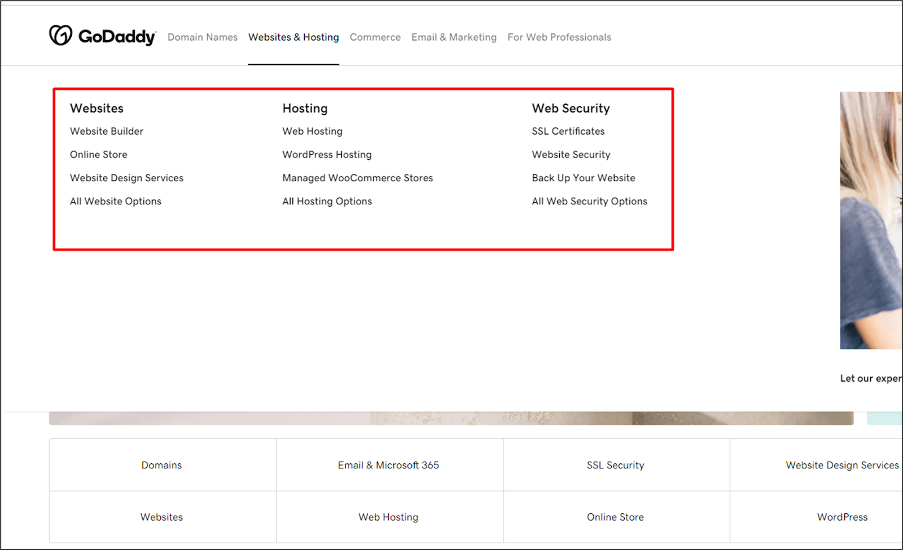I’m not going to lie. Starting a business in Singapore is a complicated process.
Just think about it. There’s a large amount of paperwork that needs to be done, a huge number of regulations you need to consider, and let’s not even begin about learning the basics of managing a business's day-to-day operations.
It can, and will, be a lot. But don’t worry, that’s what we’re here for. In this article, I’ll walk you through everything from things you should consider before starting a company to business registration in Singapore and the basics on how to run one. Let’s delve right in, shall we?
Why start a business in Singapore?
Singapore is consistently ranked as one of the easiest places to do business in the world. The government has streamlined procedures for starting and operating a business, making it easy for entrepreneurs to get started.
The government is also extremely supportive of businesses and offers various schemes and initiatives to support the growth of businesses and entrepreneurs. These include such as grants, tax incentives and incubator programs.
Here are some of the top reasons why you should start a business in Singapore:
1. Pro-business environment
Singapore has a pro-business environment that encourages entrepreneurship and innovation. The government has implemented policies and initiatives to support the development of small and medium-sized enterprises.
For example, the Startup SG Founder (SSGF) programme was created to support aspiring first-time entrepreneurs to start their own innovative businesses by providing mentorship and financial support.
Through SSGF, first-time founders can access funding through a startup grant and mentorship from Accredited Mentor Partners (AMPs). This includes pitch training, networking opportunities with investors and corporates, secretarial and accounting support, and access to exclusive programmes.
2. Low taxes
Singapore has a low tax regime, which helps businesses keep more of their profits. Singapore's corporate tax rate is one of the lowest in the world, and there are also various tax incentives available for businesses. Profits of your companies operating in Singapore will be taxed at 17%.
3. Strong economy
Singapore has a strong and stable economy, which is conducive to starting and growing a business. It has a highly developed financial system and a skilled workforce, which are essential for any business. And thanks to its strong leadership, Singapore saw an impressive post-COVID-19 recovery.
4. Strategic location
Singapore is strategically located at the crossroads of Southeast Asia and the Asia-Pacific region, making it a hub for trade and commerce. This makes it an ideal location for businesses that want to tap into the fast-growing markets of the region.
What are some businesses you can start in Singapore?
1. Home-based business
A home-based business is a business that is operated from the home of the entrepreneur. These businesses can range from small, one-person operations to larger companies with multiple employees. They typically involve low startup costs and minimal overhead, which makes them an attractive option for those looking to start a business in Singapore.
Starting a home-based business in Singapore can be a great option for many reasons. One of the main benefits is the low startup costs, as you do not need to invest in commercial property, which can be expensive. This makes it an accessible option for those who have limited capital to invest. Additionally, home-based businesses do not have the same operational costs as traditional brick and mortar businesses, which can also help keep costs low.

Another advantage of starting a home-based business in Singapore is the flexibility it offers. As a home-based business owner, you have the freedom to set your own schedule, which can make it easier to balance work and personal life. Additionally, home-based businesses can be operated from anywhere, which makes it easy to move or travel while still running your business.
Some examples of home-based businesses include, delivery-only food businesses, virtual marketing agencies, and freelance consulting.
2. E-commerce business
E-commerce has seen significant growth in recent years, providing new opportunities for businesses and entrepreneurs in Singapore.
According to a report by the Infocomm Media Development Authority (IMDA), e-commerce sales in Singapore reached $3.1 billion in 2019, an increase of 15% from the previous year. This trend is expected to continue, with e-commerce sales forecasted to reach $5.4 billion by 2023.
The increasing availability of internet access and the widespread use of smartphones have made it easier for consumers to shop online, and this has led to a growing demand for e-commerce businesses. According to the IMDA report, more than 85% of Singaporeans have access to the internet, and mobile device penetration is at about 150%. With the IMDA forecasting that about 80% of Singaporeans will shop online by 2023, the opportunities are endless.

Some examples of e-commerce businesses in Singapore include online scented candle stores or online accessory stores like The Prickly Pins.
3. Tech startups
The rise of tech startups in Singapore has been a significant development in recent years, as the city-state has become a hub for innovation and entrepreneurship. There are several factors that have contributed to the growth of tech startups in Singapore.
First off, the Singapore government has been actively supporting the growth of tech startups through various initiatives and schemes, such as the Startup SG program and the Startup SG Founder scheme. These initiatives provide funding, mentorship, and networking opportunities for tech startups.
This, coupled with Singapore’s highly educated and skilled workforce, creates the perfect recipe for the growth of innovative tech businesses. The city-state has a strong focus on education and research and development, which has led to a talent pool of engineers, data scientists and software developers.
Furthermore, Singapore has a well-developed venture capital and private equity ecosystem that provides access to funding for tech startups. There are also various government-led initiatives that provide funding for startups, such as the National Research Foundation's Technology Incubation Scheme. If you’re not sure how you can find investors, fret not.
Read more: How to start a software company in Singapore?
What are the requirements for starting a business in Singapore?
There are several requirements that you will need to meet in order to start a business in Singapore. By meeting these requirements and carefully planning your business, you can increase your chances of success in Singapore. These include:
1. Having a business structure
You will need to decide on the type of business structure that best suits your needs, such as a sole proprietorship, partnership, or limited liability company. Each type of business structure has its own advantages and disadvantages, so it is important to consider your goals and needs before making a decision.
2. Having the necessary licenses and permits
Depending on the nature of your business, you may need to obtain various licenses and permits in order to operate legally in Singapore. This may include a business license, a work permit, and/or other specialized licenses.
3. Registering your business
You will need to register your business with the Accounting and Corporate Regulatory Authority (ACRA). It is the government agency responsible for regulating businesses in Singapore. This process involves completing an online application and paying a fee.
4. Understanding local tax laws
Comply with tax and employment laws: You will need to register for various taxes, such as the goods and services tax (GST) and the corporate income tax. You will also need to comply with employment laws, including those related to hiring, payroll, and benefits.
5. Finding a suitable location for your business
You will need to decide on a location for your business, taking into account factors such as rent, accessibility, and proximity to potential customers.
6. Good understanding of the local market
A good understanding of the local market will allow entrepreneurs to identify the target market for their products or services, and tailor their offerings to meet the specific needs of those customers. This is key for ensuring a good product-market fit. This, in turn, allows entrepreneurs to set prices that are competitive yet profitable.
Doing good market research also give entrepreneurs an idea of the competition they will be facing, allowing them to develop strategies to differentiate their products or services and gain a competitive edge.
A step-by-step guide on how to start a business in Singapore?
1. Identifying your target audience and their needs
You need to have a clear idea about your target audience and their needs before you launch your business. Focus on the customer and what they potentially want from the product or service you intend to offer. Here is a list of questions you need to ask:
- What is the purpose of your product or service?
- What are the benefits of using your product or service?
- How is your product or better than your competitors?
A good resource for you to get inspiration for ideas is on Quora. You can see all the questions people are asking, and some common challenges faced by these answer seekers.
This becomes excellent insights for you to develop your unique solutions to help them solve their problems.
2. Identify your business proposition
As you plan your business, you should have a clear view of what you want to do.
Be specific and precise about the type of business you want to start, the location of the business, or your target audience.
One of the best frameworks that can help you is the Lean Business Canvas. Widely used by entrepreneurs all over the world, it helps you to visualize your idea and your business model.
Once you identify challenges and problems faced by your target customers, you need to research on potential competitors for your planned business.
With customer and competitor research out out of the way, start looking into the product or solution you want to develop. Think about how your product or solution benefits your customers, connecting it to your customer's challenges. Develop strong differentiation factors from your competitors allows customers the reason to pick your product or solution.
Editor's Note: Get started on ideating for your business and product with this nifty guide!
3. Decide on your business location

After you have figured out your business idea, think about where you want to operate your business. Common places to start a business include the following:
- Home-based: If you plan to test your business idea or keep your business small, you don’t need a separate office space! You can start your business from home. This allows you to save money on rent. Besides saving money, you get to spend more time with your family. That's a win-win!
- Co-working space: If you need to separate your work and living space, a co-working space such as WeWork is your next option. Many co-working spaces are set up with the intent to help you to start your own business. Being in a co-working space gives you an opportunity to network and interact with like-minded entrepreneurs. You can seek out feedback for your business idea, or even find your business partners.
- Retail: If you plan to start a retail business, make sure that you have sufficient capital to invest in the business. You need the capital to purchase inventory and pay for the rent of your retail space. There are many types of retail spaces available in Singapore. Popular ones include shopping malls, shops in heartland neighbourhoods or even shophouses in heritage districts. The choices are aplenty. In addition, you need to set aside budget for interior design and a contractor to beautify your shop.
4. Develop a business plan and find your startup capital
As you prepare for your business, make sure you develop a complete business plan. Building a business without proper planning is like building a house without a blueprint. With the right business plan, you will have visibility of your targeted goals, how you will operationalize your business and the capital you need.
When you are starting out, it is better to start small and build on your business step-by-step. Even if your startup has potential, it may take time for you to see significant results. Having said that, there are some companies that start off with an idea and grow rapidly from there. To find out how much capital you might need, check out sites like Crunchbase and Flippa. On these sites, many founders share the cost structures of their business.

If you plan to raise funds for your business, check out sites like AngelList and Crunchbase for potential investors interested in your product.
Editor's Note: Explore how you can seek out microfinancing options to raise the funds you need for your business!
5. Registering your company in Singapore
Once you have your business plan ready, it is time to register your company in Singapore. You can easily register your company online.
All businesses will need to be registered with the Accounting and Corporate Regulatory Authority of Singapore (ACRA). If you are thinking of operating a micro-business, you can consider registering a sole proprietorship instead of a private company as the registration process is easier and the maintenance is cheaper.
If you want to register a private limited company in Singapore, there are 3 things you need to provide ACRA.
- Business name: You need to provide a unique name legally approved by the ACRA. Choose a name that is short, easy to remember and relevant to your business. You can try using free name generators online if you need some ideas.
- Business address: An address is also important because it helps other people to connect with your business. If you are just starting out, you can register your business with a virtual office offering mail services.
- Nature of your business: The full list of the Singapore Standard Industrial Classification (SSIC) code corresponding to your business activity is issued by the Department of Statistics of Singapore. Your business activities must fall under one of the pre-defined classifications. On top of that, you need to provide additional information to elaborate on your chosen classification.
A step-by-step guide on how to register your business in Singapore is provided in the next section.
Editor's Note: Need help choosing your business name? GoDaddy's got you covered here.
6. Familiarize yourself with the Inland Revenue Authority of Singapore (IRAS)

Once the process of registering your business in Singapore with ACRA is done, you do not need to register with the Inland Revenue Authority of Singapore (IRAS).
However, familiarize yourself with the reports and statements IRAS need to receive from you while you are operating your business in Singapore.
Furthermore, there are various tax reliefs for startups that can help you get off the ground during the first few years of business. All companies with an annual chargeable income of under SGD100K will only have to pay 25% on their taxable income of 17%.
For example, assuming your startup earns SGD80K in taxable profits (i.e. after deducting any deductible expenses and investments from your company’s gross profit), during the first year of operations, your company is only liable to pay 4.25% (i.e. 25% of the corporate tax rate of 17%), or SGD3.4K in corporate tax for that financial year. Once your company is incorporated in Singapore, you can check with IRAS for additional tax relief packages.
7. Setting up a business bank account in Singapore
After you have registered your company, the next step is to open a business bank account. Setting up a business bank account is easy and can be done within an hour.
Opening a business bank account helps you keep your finances organized. The account will also act as a single point of reference for all your business transactions.
Even if you are planning to operate as a sole proprietor, you should still set up a separate business bank account. DBS, OCBC, or UOB are some of the largest banks in Singapore and you can bank on them (pun intended!) if you operate a business in Singapore.
Alternatively, you can also consider opening a virtual bank account with Payoneer, Skrill or Wise. These are suitable for e-commerce and freelancing businesses. You can receive payments from worldwide buyers in their local currencies. Exchange rates are also mostly competitive on these platforms, hence allowing you to avoid exorbitant charges.
8. Create a well-designed website
As we’ve already established, the internet penetration rate of Singapore is off the charts. If you don’t have a website ready to brand your business and capture leads, you are missing out.
A well-designed website can help to establish a professional image for your business and make a positive first impression on potential customers. This, in turn, helps to increase credibility for your business by providing detailed information about your products or services, contact details, and even customer reviews.

A website should also be designed with navigation in mind. Just think about it. If your site visitors can’t find where your various product, product feature, or service pages are in your navigation menu, why would they put in the effort to try if you aren’t reciprocating it?
9. Invest heavily in digital marketing
There has never been a time where digital marketing is more crucial. Having a live website is not enough to help you grow your online presence. You will have to engage in search engine optimization (SEO) and paid ads.
Google’s natural language processing ability (NLP) allows it to serve search results that are most relevant to your query.
People find your website based on specific queries they key into the search browser. The browser’s algorithm (typically Google) is able to recognise the search intent behind the user’s query and return search results of web pages with content that match the search intent of the keyword.
Digital marketing is a great way for you to promote your products online.
And this is where SEO comes in. Good SEO means being able to recognize the search intent of a particular keyword and write content to optimize your web page specifically for that keyword. Notably, SEO is a long-term game and you cannot expect to see results too soon.
When it comes to paid ads, the operations really depends on which platform you are advertising. If you decide to go with Google AdSense, you’ll rely on keywords too. Only this time, you are bidding for the highest spots on the search engine results page (SERP) with an actual budget.
When working in unison, SEO and paid ads can do wonders for your brand awareness and online presence.
Do you know how to register and start a company in Singapore now?
And there you have it! Here is our ultimate guide on how you can register and start a company in Singapore.
And as you can see, we really aren’t lying. It is a complex and lengthy process. But that doesn’t mean that you should just give up right away. Compared to many countries in the world, Singapore is still one of the best places to start a business given the amount of support you get as a newbie entrepreneur.
The experiences and the personal growth you gain can far outweigh the struggles that come with running a business.
Ready to start a business in Singapore?
With these steps, you will be able to start a business in Singapore and overcome the initial hurdles. The best thing about starting businesses in Singapore is the widespread availability of resources online. When in doubt, Google what you need! Besides utilizing search engines, you can also check out the following government sites:
- ACRA - https://www.acra.gov.sg/
- IRAS - https://www.iras.gov.sg/
Both of these sites contain all the necessary information about different business activities you can do in Singapore.
Good luck in starting your business in Singapore!
This post was originally published on Jun 3, 2021, and was updated on Mar 13, 2023, Feb 8, 2024 and Aug 21, 2024.








